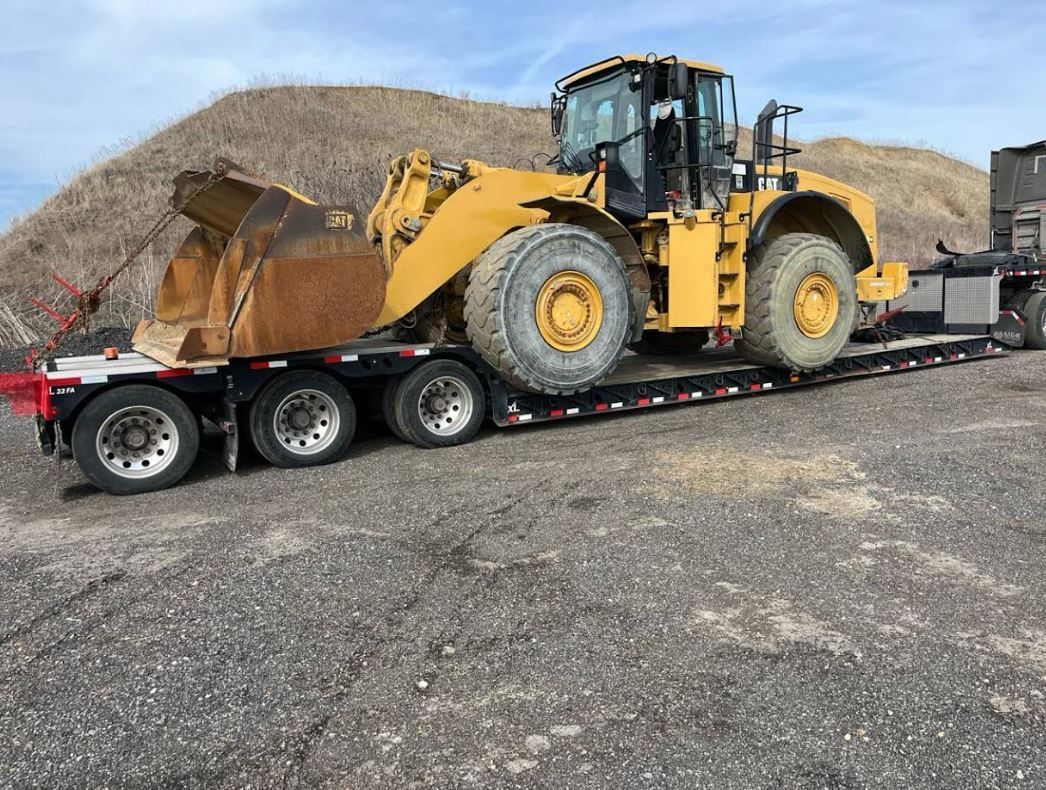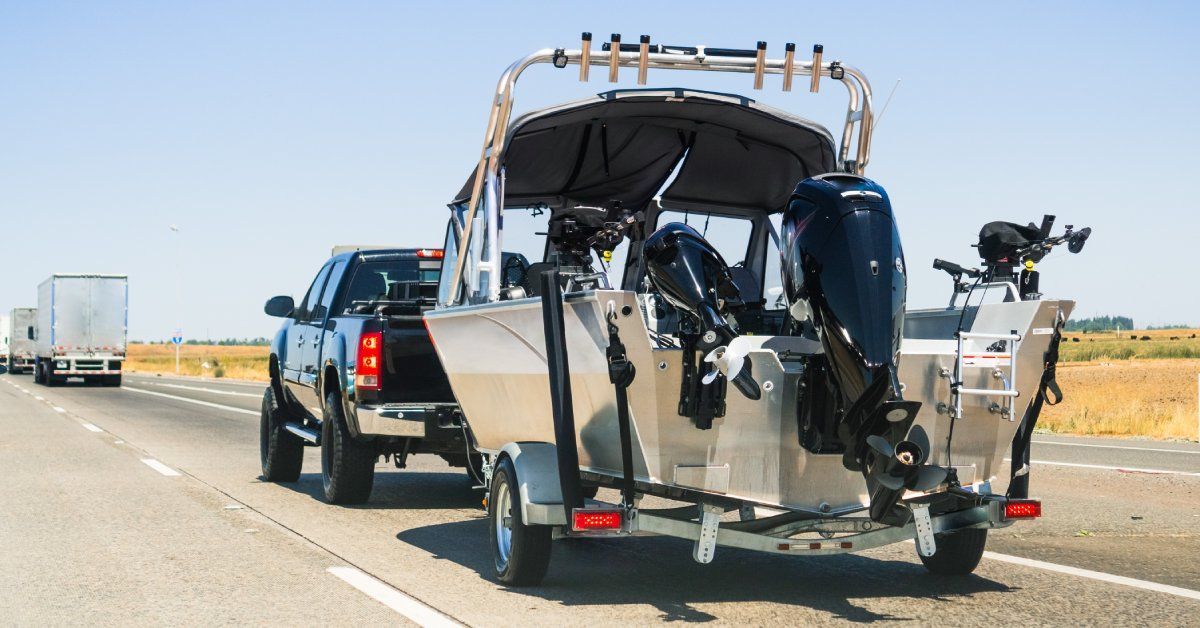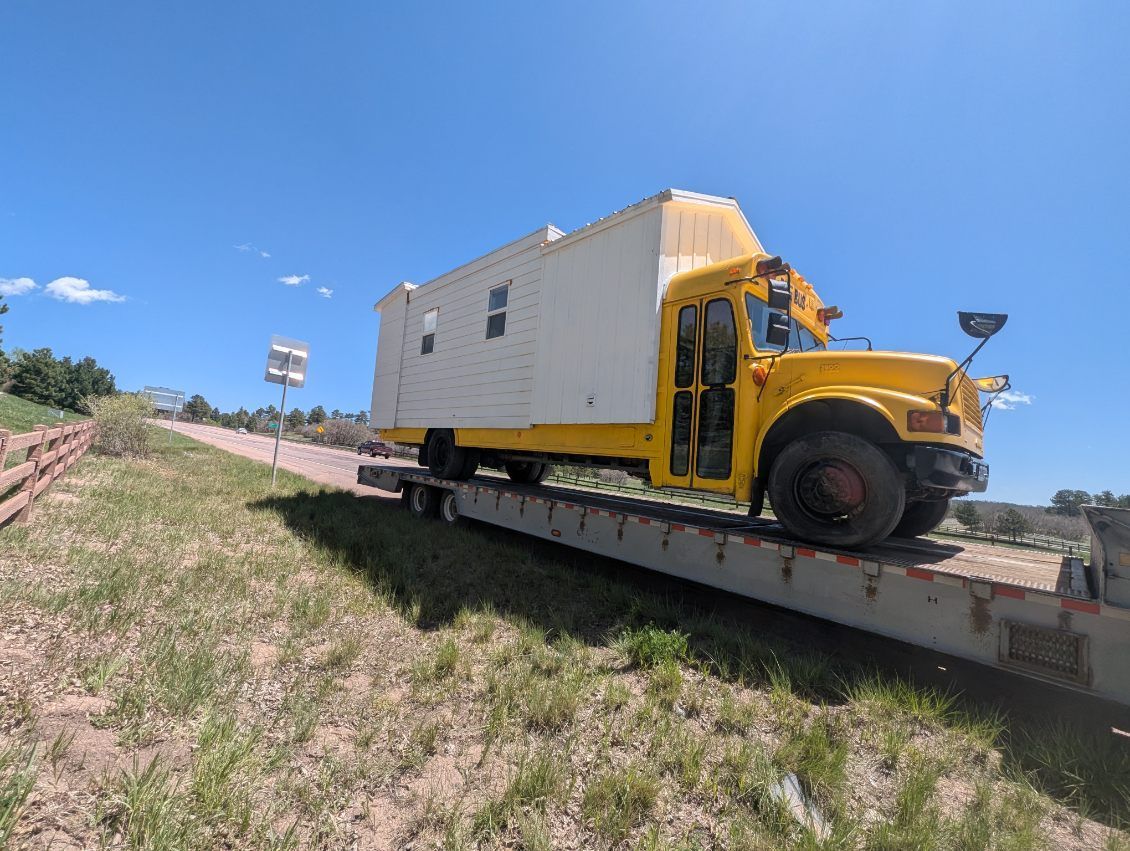Tips for Transporting Heavy Equipment
- By Taylor Tefft
- •
- 20 Mar, 2025
- •

- Assess the size, weight, and dimensions of the equipment.
- Identify the best transportation method (flatbed truck, lowboy trailer, specialized hauler, etc.).
- Obtain any necessary permits for oversized loads.
- Choose the appropriate trailer or hauler based on the weight and size of the machinery.
- Ensure the vehicle has the required load capacity.
- Use cranes, forklifts, or hydraulic lifts for loading and unloading.
- Use heavy-duty chains, straps, or binders to secure the equipment.
- Ensure weight distribution is even to prevent tipping or shifting during transit.
- Follow DOT (Department of Transportation) guidelines for load securing.
- Conduct a pre-transport inspection of the equipment and vehicle.
- Make sure all fluids are drained if required, and attachments are removed or secured.
- Use proper PPE (Personal Protective Equipment) for all workers involved.
- Verify weight limits, road restrictions, and required permits.
- Arrange for escort vehicles if necessary for oversized loads.
- Ensure compliance with both federal and state transportation laws.
- Identify the best and safest roads for transport.
- Consider bridge weight limits, road conditions, and clearance height.
- Check for any construction zones or detours that may impact travel.
- Hire or train drivers with expertise in handling oversized or heavy loads.
- Ensure they understand how to navigate difficult terrain and tight spaces.
- Provide proper communication tools to coordinate with escort teams if needed.
- Avoid transporting heavy machinery in extreme weather conditions (heavy rain, snow, or strong winds).
- Have contingency plans in case of delays due to weather.
- Check the equipment for any signs of damage after unloading.
- Ensure all components and attachments are properly reassembled.
- Verify that transport documents and logs are updated accordingly.
1. Plan Ahead
2. Use the Right Equipment
3. Secure the Load Properly
4. Follow Safety Measures
5. Check Legal and Regulatory Requirements
6. Plan the Route Carefully
7. Use Experienced Drivers
8. Monitor Weather Conditions
9. Conduct Post-Transport Inspections

Contact us at (800) 674-8441 or quotes@one-calllogistics.com!

Hurricane Preparedness for RV Owners: A Guide to Staying Safe and Secure
When hurricane season rolls around, RV owners must be extra vigilant about preparing their vehicles for extreme weather. The combination of mobility and vulnerability makes RVs both a blessing and a curse during storms. While it’s tempting to stay in your RV, it’s important to take extra steps to ensure both your safety and the safety of your vehicle.
Whether you're a full-time RVer or just using your RV for weekend getaways, here's a comprehensive guide to help you prepare for hurricanes and stay safe during the storm.












